PHILADELPHIA, 29 August — I’m not really at the “Virtual Wharton School” but a Coursera’s Online Virtual School, but since the instructor, Kevin Werbach, is from the Wharton School, the Philadelphia dateline seems fitting. Anyway, late August, it’s probably pretty humid there, so “virtual” is “cool.” Today I’m doing Class #2, “Games”
You can’t understand gamification without understanding games. This unit explains why the concept of games is deeper than most people realize, and the game-based foundations for gamification.
Class Notes – Part 2 – Games
2.1 Gamification in context
What Gamification is not – turning everything into a game. Not turning everything into WoW or living in SL. It’s game techniques and meaningful experiences IRL. (Augmented Reality? Mixed Reality?)
Most successful game of all time – Windows Solitaire! – often played at work! Gamification is finding things that are not boring to increase productivity.
Cracker Jacks Prize / McDonalds Monopoly Game – not Gamification – successful, but not using game techniques to improve / increase experience. Cousin of gamification, but it’s using “actual” games. Same with “Serious ‘Games” – actual games.
Gamification is also broader than people often think. Not just for marketing or customer engagement. More than “PBL’s” – Points, Badges & Leaderboards.
Gamification is not “Game Theory” (study of strategic decision making)
Gamification IS:
• Listening to what games can teach us
• Learning from game design (psychology, management, marketing, econ)
• Appreciating fun (recognizing that fun is powerful!)
Play (unstructured) vs Games (goals, rules, win-lose)
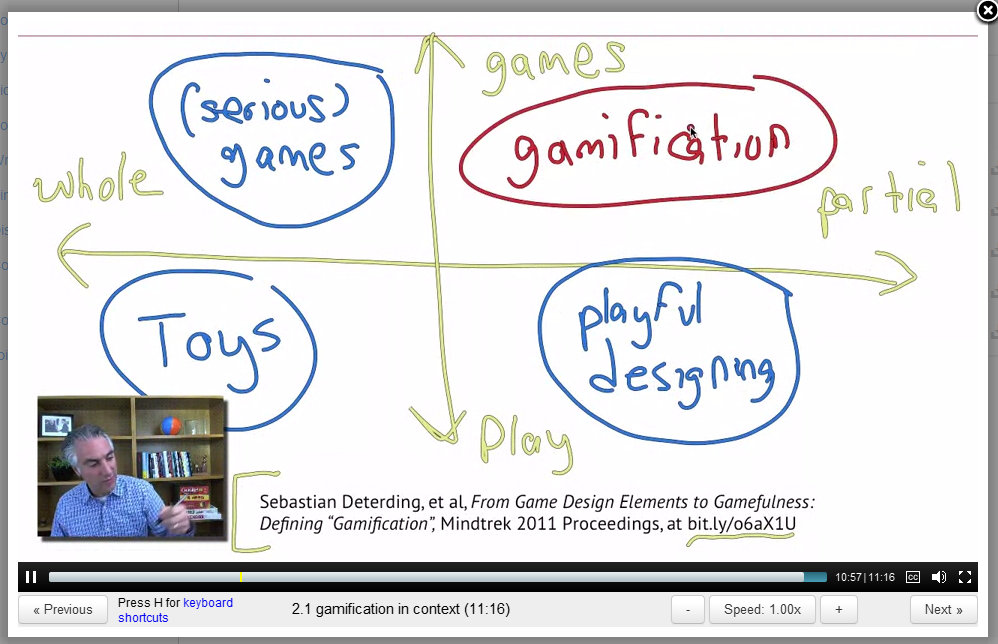
2.2 What is a game?
Wittgenstein – it’s impossible to define what a game is! (indeterminacy of language)
What is it that ties Hop Scotch & Call of Duty & Water Polo together?
Different aspects: points, teams, winning
Bernard Suits – actually we can define what a game is!
1. Pre-lusory Goal
2. Constitutive Rules (rules make it game-like instead of just work objective)
3. Lusory Attitude (player follows rules (voluntarily) “care” about the game – it means something to the players)
• voluntarily overcoming unnecessary obstacles (must be voluntary to be a game)
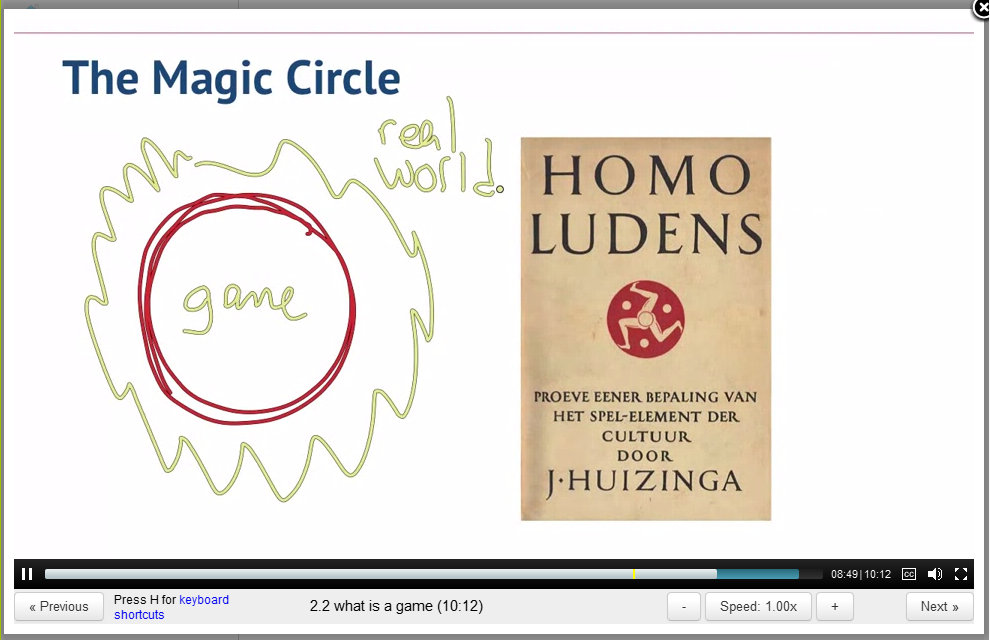
Huizinga – Homo Ludens (book) – games & play are essential to what makes us human
• Magic Circle – world of game divided from real world – physical or conceptual boundary – when you’re in the Magic Circle the game rules matter, not the rules of the real world. Essentially in virtual environment, whether physical or online.
Challenge & Opportunity for Gamification ==> Put “player” in Magic Circle as much as possible.
The Magic Circle seems like a really powerful idea. It seems like it’s what’s fun, empowering, inspiring about having an Avatar, about Counterfactual Histories and Counterfactual Identities, it’s part of the experience of fiction in great literature and great cinema.
So… how do we create, and maintain, the circle!? 😀
2.3 Games and Play
Roger Callois: Ludus (games) Paidia (play) — 2 different poles.
Obviously they’re connected, yet different.
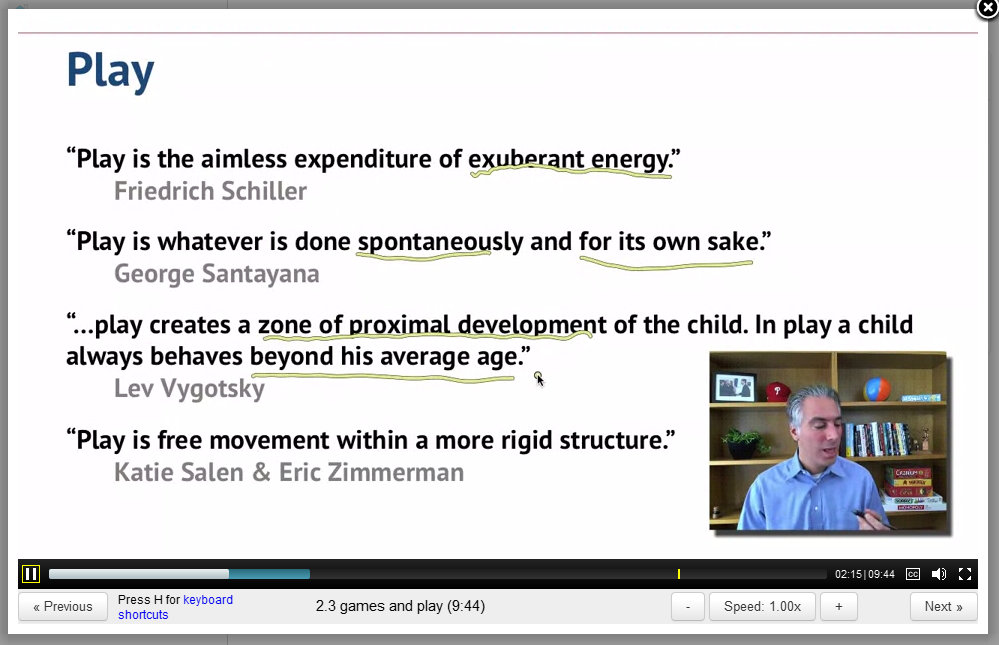
Play – unstructured, but within some limits / domain (Magic Circle)
Game – branching path with set of choices > results – moving thru our path in the game, is play, we have freedom in what we do. The game design is what gives us an opportunity to make “meaningful” choices.
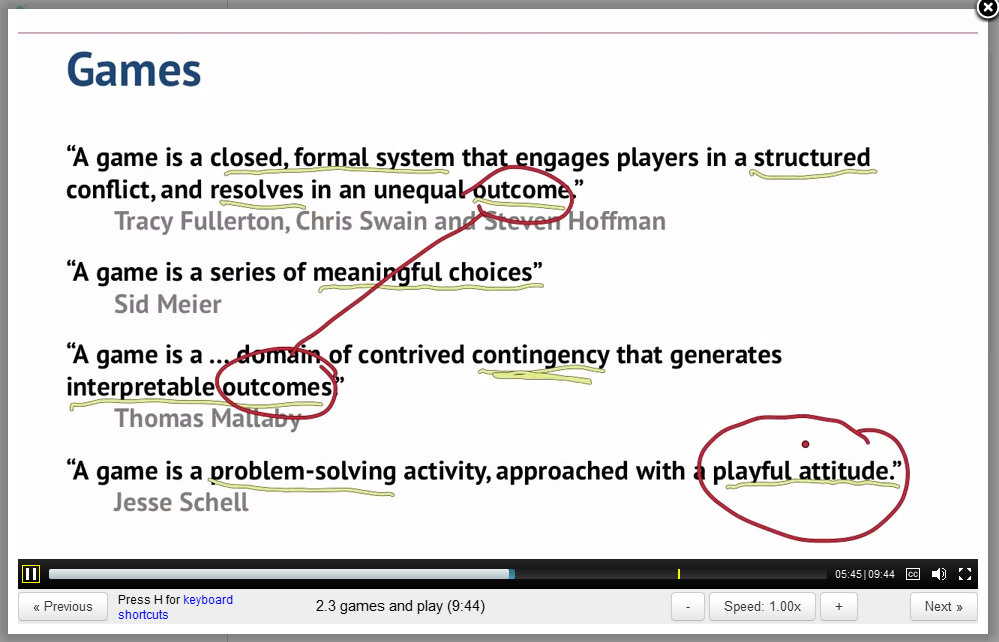
Make a list of things in your life that involve PLAY… GAMES… things from work or school or social life or government…
• Voluntariness! (whoever must play, cannot play!)
• Games involve learning or problem solving
• Balance of structure and exploration (possibilities too limited VS not enough purpose, just wandering around)
2.4 Video games
Most gamification examples involve online video systems. Size, scale, and pervasiveness of video game industry.
40 years ago – Pong! – for the 1st time, gave people the power to interact with a game on a screen at home. Today pervasive in experience of young people particularly in the west.
ex: Cityville – casual social game on Facebook from Zynga (simple compared to rich 3D games)
launched in 2011 – 100 million registered users in 41 days!
Game industry today US$66 billion – double Hollywood box office revenues
Online sales to surpass retail in 2013
China now worlds largest online gaming market
Virtual goods: US$7.3 billion globally / 2 billion in USA
44% of US/UK adults have played a mobile game in the last month (eg Angry Birds on Smart Phone)
>> The Mass Medium of the 21st Century
WoW – 50 billion minutes / month
Angry Birds – more users, less time
Xbox live – 120 billion minutes / month
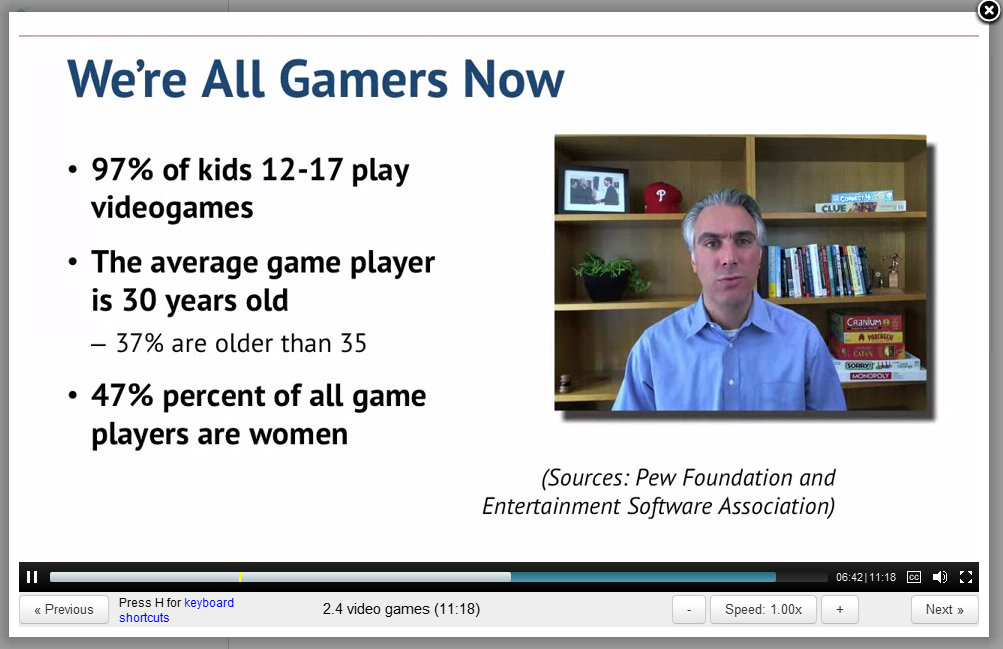
We’re all gamers now!
Women – more social, casual games
Men – more 1st person shooter
2.5 It’s Just a Game?
Assumption that games are somehow trivial
especially when we’re talking about business or major objectives
Real World Building Blocks
digital
• E-business2.0 – analytics, cloud, mobile, etc
• Social networks and media
non-digital
• Loyalty programs (could leverage game dynamics more!)
• Management and marketing research
Games and the real world are coming closer together. Moving the real world into the game.
ex: America’s Army (most successful recruiting tool in Amry’s history)
And games are coming to the real world
ex: virtual goods
ex: grey market industry “Gold Farming” – 100,000 – 400,000 people in China earning a living Gold Farming
Julian Debel > Play Money (book)
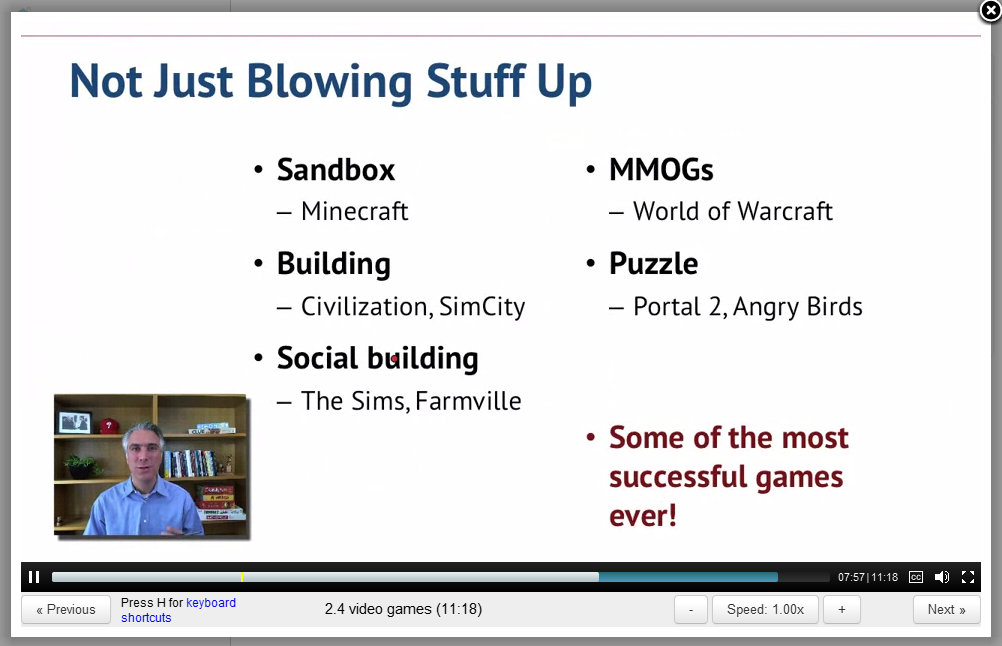
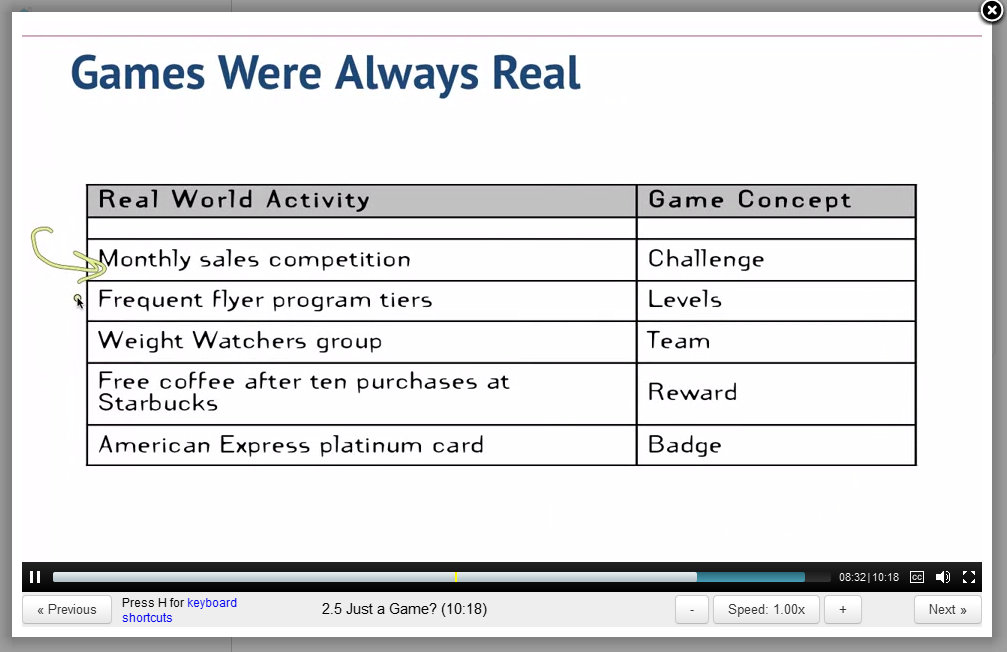
I digged out this slide on definitions from one of my old classes. The presentation was done by Gordon Calleja, so he’s the author, so to speak.
Hey, thankies for digging that up Ironyca! Sorry I’ve been so MIA for a coupla weeks now. I keep telling peeps that I’m buried with new projects and new students at the start of this academic year… but I’m sure you realize the truth is that I’ve been raiding 24/7!
/me cackles yet again!